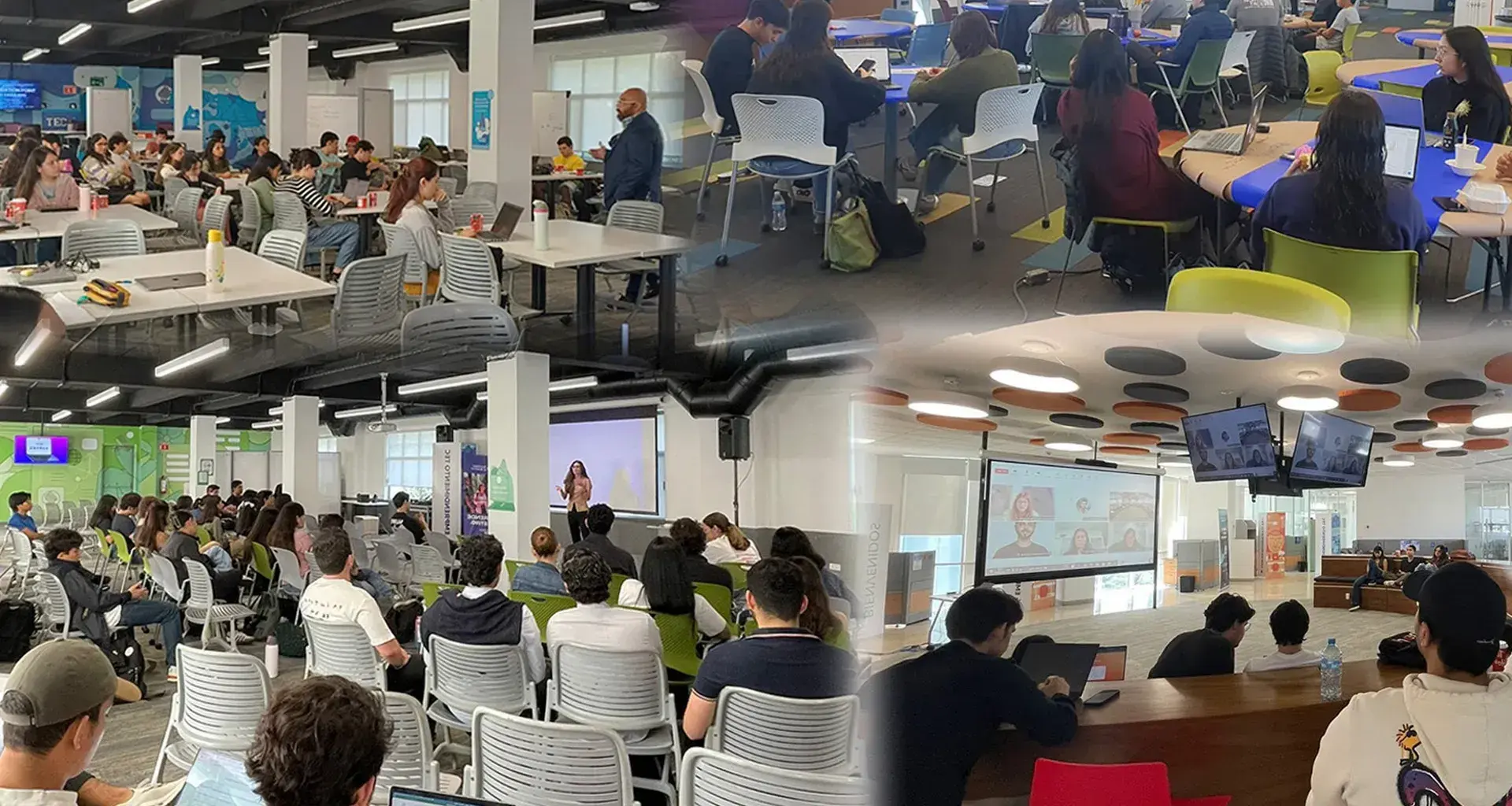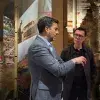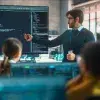- news
- national
- education
- 7 Tec student projects in DigiEduHack 2024 global semifinals
Warning message
Unable to retrieve https://conecta.tec.mx/en/news/national/education/educational-solution-ai-tecs-proposal-wins-global-hackathon at this time, please check again later.
Six Tec de Monterrey student projects have advanced directly to the global semifinals of DigiEduHack 2024, among more than 50 institutions from around the world, as well as another “wild card.”
This is a global initiative launched by the European Commission to develop solutions focused on educational innovation, in which 300 Tec students have participated this year.
“We have six winning projects from each of the campuses, which are now global semi-finalists,” said Jan Rehak, professor and national director of the Tec’s entrepreneurship program, who added that another team had obtained a “wild card”.
The semi-finalist projects are from the Monterrey, Guadalajara, Mexico City, Puebla, Querétaro, and Chihuahua campuses.
“(In December), the European Commission selects 12 finalists from over 50 global semi-finalist projects,” Rehak added.
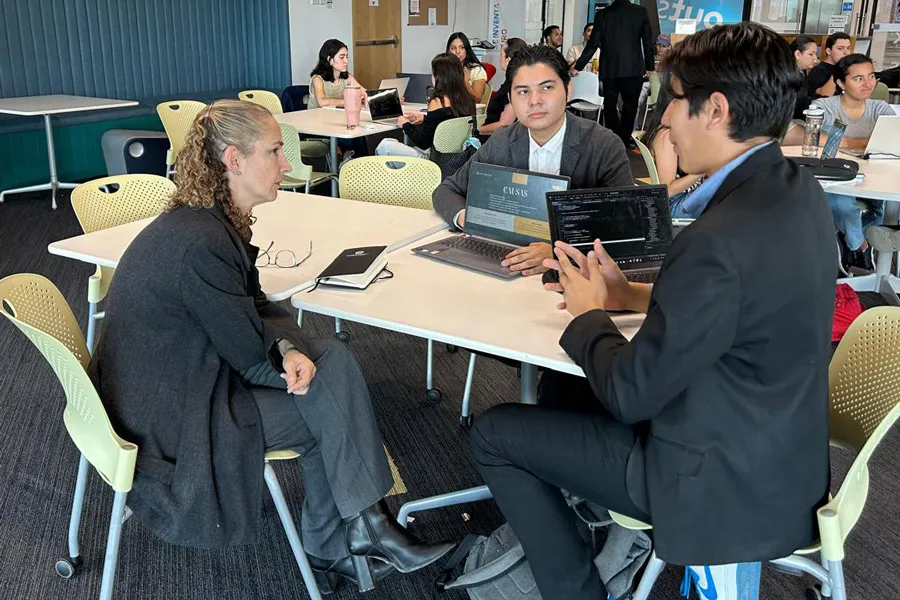
Rehak said that over the last 5 years, in the last 4 editions of DigiEduHack, a Tec team has twice made it to the final round, and also become the global winner.
The first of these was the Teaming 4.0 educational project in 2020; and the second was in 2023, with the ADAPTATEC project.
“(The winning Tec teams) traveled to present their projects in Brussels (Belgium) to the European Commission, thereby promoting and positioning Tec de Monterrey students internationally.”
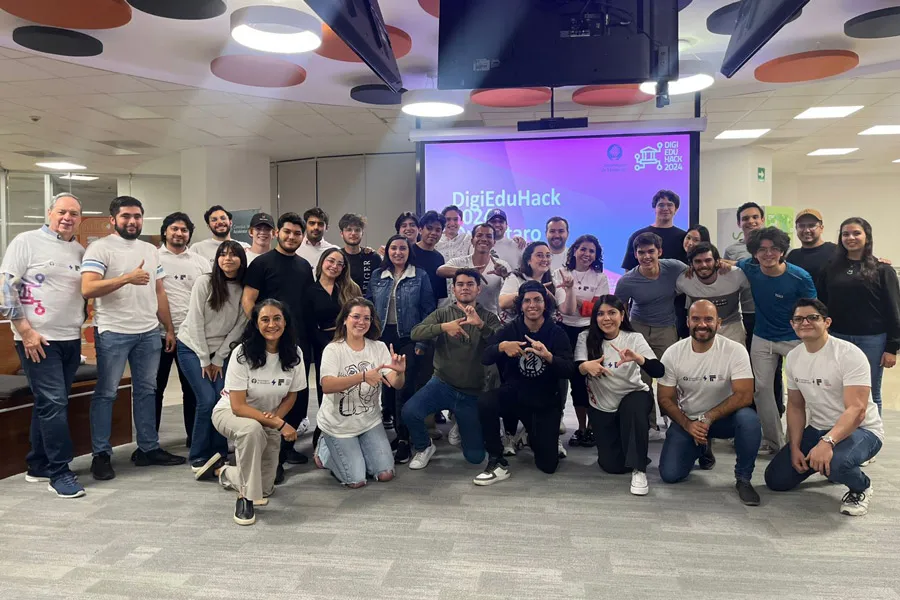
The Tec’s projects
The semi-finalist teams include:
- Monterrey campus: LEI4Edu
- Mexico City campus: Kimi
- Guadalajara campus: Edumind
- Puebla campus: Playtec and Concora (Wild card)
- Chihuahua campus: Riwi
- Querétaro campus: Cultivarte
Rehak said the focus of the Tec de Monterrey teams is to transform society through disruptive education based on emerging technologies.
“All the projects that participated have been focused on developing innovative and disruptive solutions with emerging technologies such as artificial intelligence, machine learning, and virtual or augmented reality, to have an impact on education.”
Rehak said there were a variety of projects targeting education in underserved areas through low-tech devices using artificial intelligence.
“For example, Querétaro (the campus team), which also recently participated in the main stage event in Tallinn, Estonia, has worked with rural schools, helping people by bringing quality education to marginalized areas.”
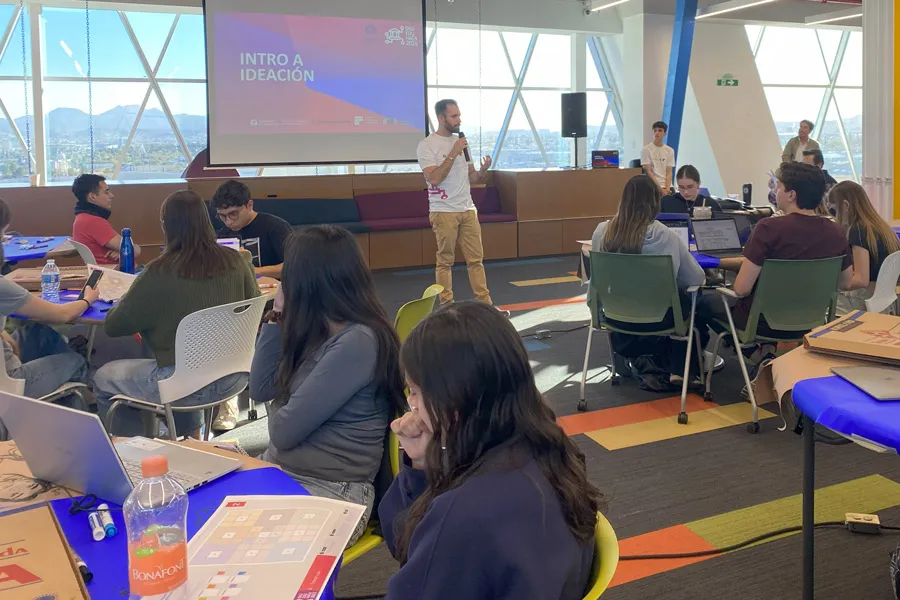
The Tec professor said that the Business School, the Institute for the Future of Education (IFE), and the Eugenio Garza Lagüera Institute of Entrepreneurship (IEEGL) are coordinating to carry out DigiEduHack.
“In this way, students develop skills such as identifying opportunities for educational innovation and are nurtured by mentors from these institutes, who help them create products that have social impact by using emerging technologies.”
He pointed out that, for example, mentors from the Business School help young people land their projects from a business perspective.
“Basically, students learn both how to develop innovative projects and how to use emerging technologies,” he said.
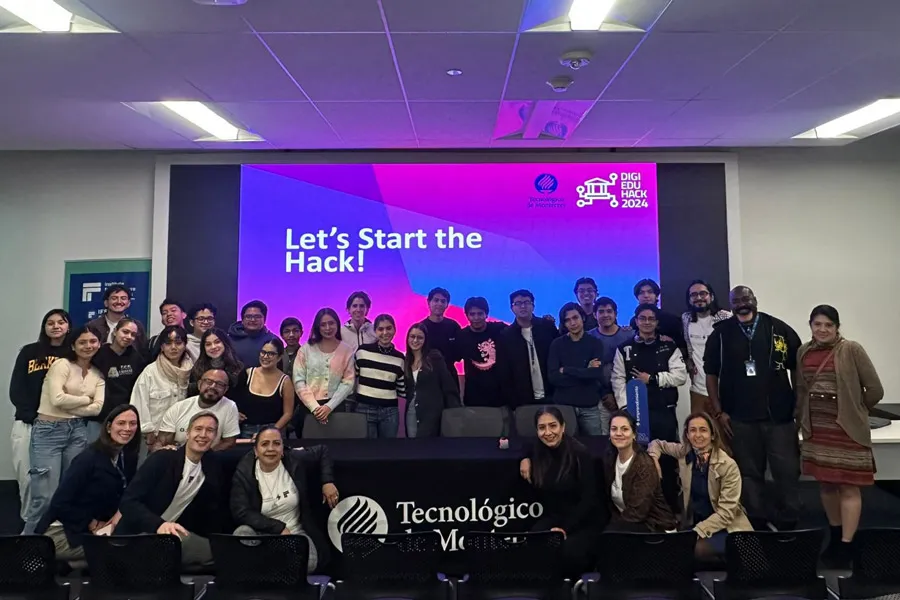
The Tec’s role in DigiEduHack
Rehak explained that the Tec joined this initiative from the European Commission in its first edition in 2019.
“They contacted us as a benchmark for educational innovation in Latin America to invite us to host this hackathon in Mexico. For several years, we were practically the only Latin American host of DigiEduHack.”
The Tec’s National Director of Entrepreneurship explained that the institution began its participation in Querétaro with a small hackathon and then expanded to other campuses.
“Over the past 2 years, we’ve participated on multiple campuses. This year, it was held simultaneously on six campuses on November 13 and 14 with more than 50 institutions (from around the world) in which student entrepreneurs participated.”
He highlighted that dozens of mentors and professors have participated in these editions to support the teams, both from the entrepreneurship department and from IFE and IEEGL.
“All the projects that participated have been focused on developing innovative and disruptive solutions (...) to have an impact on education.” - Jan Rehak
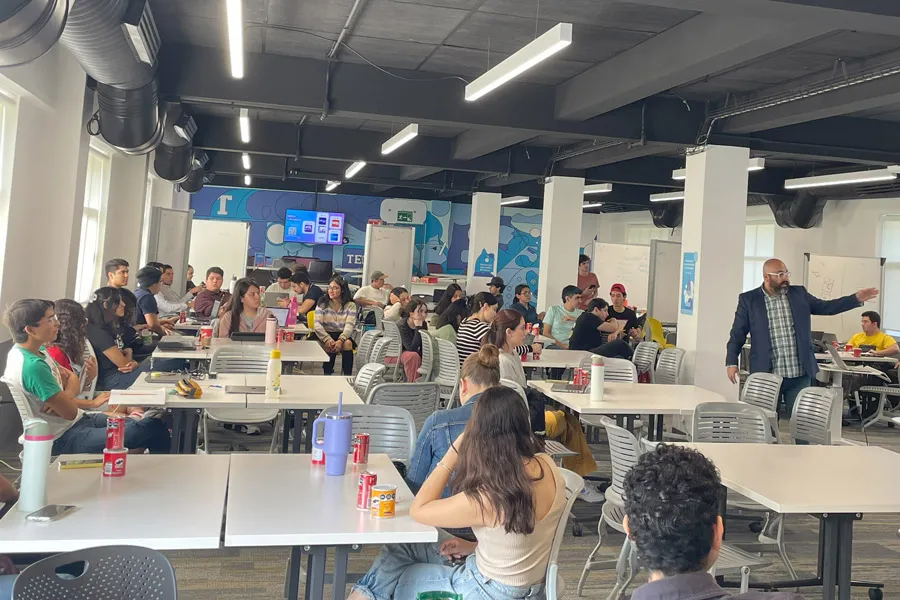
The future of education
When talking about what to expect of education in the future, the Tec professor offered the example of artificial intelligence.
“Although we know that AI is not going to replace humans, humans who know how to use it are going to replace humans who don’t know how to use it.
“So, the Tec’s approach is to find a way to educate our students so that they become experts in the use of artificial intelligence for the topic, the content, and the knowledge they’re learning,” Rehak stressed.
He said that it’s precisely in these types of hackathons, these types of global international experiences, that students develop, think, and create solutions which inspire by using emerging technologies.
“There are solutions developed by the same Tec students, which we can use to get inspired and see how to adapt to teaching-learning processes in the classroom.”
Finally, Rehak invited everyone to prepare to participate in the next DigiEduHack in 2025.
“We’ll be launching the call for applications at the end of September next year, so pluck up the courage to participate and secure your place to travel to Brussels and present Tecnológico de Monterrey’s educational innovation,” he concluded.
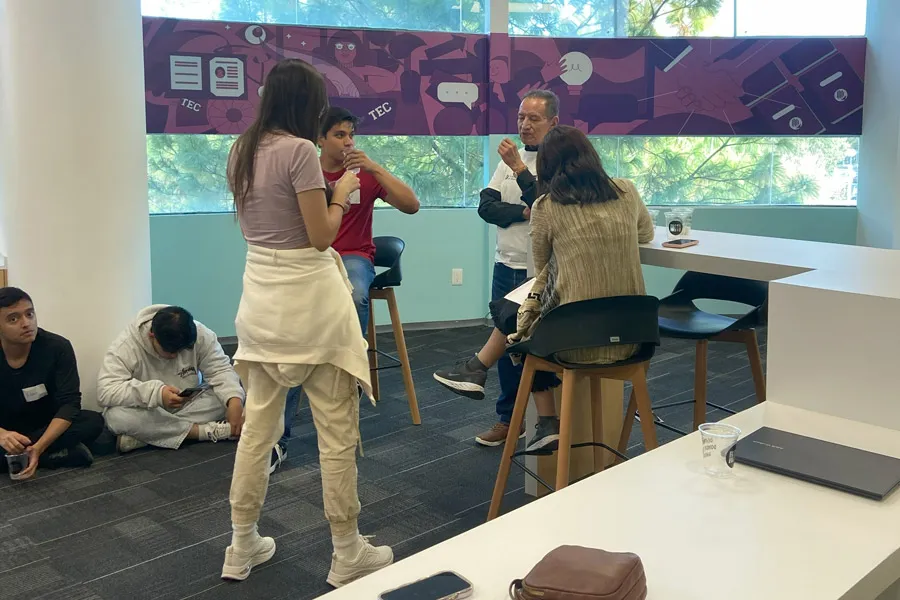
Statistics
Tec teams have participated in 4 editions in total, with 2 global winners:
- 2019 Edition
37 participants, with 8 solutions and 1 global winner - 2020 Edition
98 participants, with 18 solutions (national) - 2021 Edition
95 participants, with 20 solutions (national) - 2023 Edition
With 149 participants on 4 campuses, with 32 solutions and 1 global winner - 2024 Edition
With 300 participants on 6 campuses, with 47 solutions.
ALSO READ:

